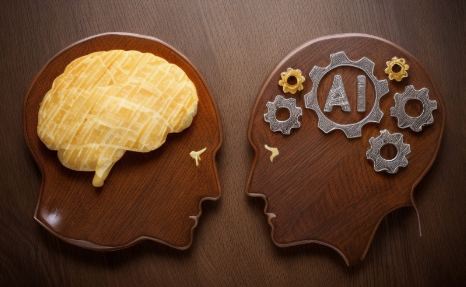Tripod Brixton,
Lambeth Town Hall,
1 Brixton Hill, London,
SW2 1RW
Hours: Monday to Friday, 8am – 7pm
Phone: 020 7580 7333

At Yellow Cat we have spent 17 years making sure the right people get connected to the right jobs in the creative industry that they love. From Producers to Animators we ensure the best talent goes to the best opportunities. We have been watching closely what has happened to the creative industry over the last few months, and years, and we still stick to the same principle: The Right People Matter. The best talent, we believe, cannot be replaced by AI, and as such, we are continuing to find that our clients are still looking for the perfect candidate – a human one, of course.
Artificial Intelligence (AI) has undeniably made significant strides in various fields, including the creative industry. However, it’s important to remember that while AI can be a powerful tool, it cannot replace the unique qualities and contributions of human beings. Here are five key reasons why people remain more important than AI in the creative industry:
1. Emotion, Empathy, and Connection
We build companies around our staff and people, which is then made richer by their human ability to use their own empathy and genuine emotion to build connections. These connections build communities in our workplaces, creating ethos and a sense of belonging. Humans are able to also apply this empathy and life experience when creating pieces of work; from writing copy to composing music – we need a human touch to build a more vivid picture. AI lacks the depth of human emotion and empathy required to create art that truly resonates with people.
2. Unique Perspectives and Personal Stories
A great hire would based upon both the candidates’ background and experience, but also what they can bring culturally to a company. No company in the creative industry would strive for a culturally homogenised workplace, and as such, we need a diversity of unique perspectives to create cultural depth within a company. These personal stories are something that cannot be generated by AI alone, and they allow for a company to develop and thrive as a collection of individuals, which in turn creates unique workplaces for workers to attach to and feel a sense of combined belonging.
3. Creative Problem Solving and Innovation
Human creators possess the ability to think outside the box, make unexpected connections, and come up with innovative ideas that push the boundaries of their respective fields. Transformation and reinvigoration within companies comes from the minds of the employees themselves – a culmination of ideas and previous lived experience from multiple people working together to build a new vision. We all know that differences of opinion will happen, but that is part of innovation. The algorithms behind AI cannot create this multi-threaded approach to problem solving that groups of humans can do – and this is where true innovation is born.
4. Adaptability and Versatility
The creative industry is dynamic and constantly evolving, requiring adaptability and versatility. By the very nature of what needs to be achieved in the creative industry, we need employees that can adapt and change when needed; and critically spot when they need to change. A ‘Modus Operandi’ approach; created by learnt and repeated processes, would not suit a company who want to be seen to be ahead of the curve. Humans are gifted with the ability to be excited by the new and novel, and employees who are looking to develop these ideas have to be able to think beyond the norm – something AI would struggle to generate.
5. Humans’ interpretation of humankind
In order for a product created by a creative company; whether film, image, word or concept this needs to be viewed empathetically for the user by the maker. Humans are effortlessly able to place themselves inside a multitude of complex scenarios to understand their audiences. This ‘reading’ of prospective audiences allows us to turn the tables on our products, imagine users accessing them and see our own creations from new viewpoints and judge it thus. AI would struggle enormously with this delicate and complex art; yet it’s a skill that happens all day, everyday across the globe as new content and ideas are generated for a new waiting audience.
In summary, while AI undoubtedly has its place in the creative industry as a tool to enhance efficiency and provide inspiration, it cannot replace the intrinsic qualities that make human creators indispensable. Emotion, empathy, unique perspectives, problem-solving, adaptability, and interpretative skills are just a few of the reasons why people remain central to the creative process. The relationship between humans and AI in the creative industry should be one of collaboration and augmentation, harnessing the strengths of both to create art that is truly extraordinary and deeply resonant.
At Yellow Cat we believe that our understanding of the creative industry from advertising to film and everything in between, gives us a unique and successful approach to talent searching. We pride ourselves on finding exciting new creative homes for our amazing – very human – candidates to thrive.
If you have a role that you would like Yellow Cat to look into, or you are looking for your new creative home, get in touch as we’d love to chat to you – human to human.
Tripod Brixton,
Lambeth Town Hall,
1 Brixton Hill, London,
SW2 1RW
Hours: Mon to Fri, 8am – 7pm
Phone: 020 7580 7333
Tripod Brixton,
Lambeth Town Hall,
1 Brixton Hill, London,
SW2 1RW
Hours: Monday to Friday, 8am – 7pm
Phone: 020 7580 7333